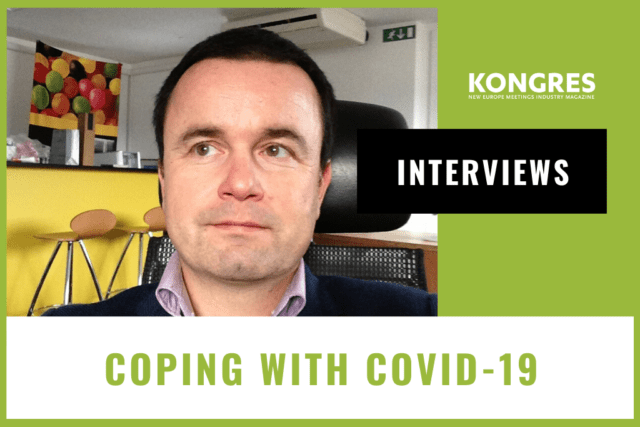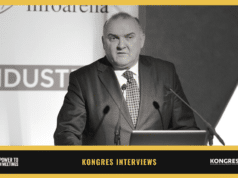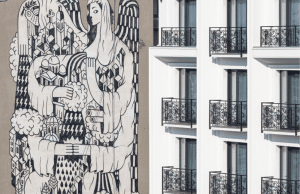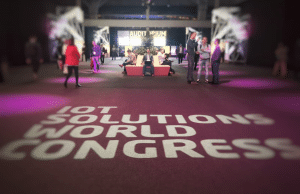The coronavirus pandemic has been revoked, but it would be naive to think everything will simply fall back into place like it never happened. Many industries will keep feeling the effects for some time and one of the most affected is surely the meetings industry. A group of industry experts formed an initiative committee to share their thoughts and concerns with the government and try to persuade the competent authorities to help keep the meetings industry on its feet.
We asked members of the initiative committee for the preservation of the Slovenian meetings industry for their thoughts on the current situation, post-COVID-19 times and governmental help.
GORAZD KOBI, General Manager at Kobi Interieri
Q: What is your official position on the measures taken so far by the Slovenian Government to help the Slovenian meetings industry?
I believe that the first measures were correct and, above all, timely given the extreme situation. The health crisis has shown this very well. The collaboration with the tourism industry to include it in the third corona act was the right move, but it did not yield the desired results in terms of financial assistance. We have however achieved media recognition and became a credible subject for discussions with decision-makers on how to solve our very specific problems in the future. This is perhaps more important than we can imagine, and if it will soon be upgraded with concrete support measures of the Slovenian Government, we will be able to say that we have achieved a lot. It is still too early for that and let us wait for the results of the negotiations.
Q: What will be the revenue drop in your company compared to 2019? How many events did you have to postpone or cancel?
Considering that our capacities for this year were almost completely sold out in February, we could justifiably expect an even better business result than last year. However, the health crisis has turned everything upside down and so far about 70 % of transactions have been cancelled. Compared to last year, we have realized only 8 % of profit to date.
By the end of the year, we will be satisfied if we reach 35 % of last year’s profit. Anything more is unrealistic at this point. In a pessimistic scenario, we won’t even achieve 20 % of the realization.
Q: The government is slowly releasing restrictions. Do you think the situation in this area is slowly normalizing itself?
The atmosphere of normalization is slowly being established, but there is still a long way to go.
Confidence in consumers, investors, and the economy has been shattered. But trust is the foundation and key driver of any economy. Until the public climate improves, there will be big problems, especially in our meetings industry, which is an upgrade to all of this. Non-objective media, which spread pessimism and negative energy among all of us without a real basis, greatly contribute to the bad climate. It is as if they want bad news according to the principle: »the worse and more catastrophic the news, the better«. They predict the imminent resignation of the government (which is doing well), a 2nd, 3rd,… 10th wave of COVID-19 infections, an economic catastrophe and all this as if it were already factual, which is absurd.
Q: What does the current situation mean for event planning? What would make your business much easier in this regard?
The current situation is very bad for event planning. It is still not known what and since when something is allowed. NIJZ (National Institute of Public Health) would like to ban or limit everything to an extent where it doesn’t make sense to operate, the Department of Health is vague in its responses as they fear the responsibility of the consequences. So far, we have learnt the most from the Ministry of the Interior. However, it is currently best to act according to the principle that what is not explicitly forbidden is allowed. Such planning is accompanied by risk, for which the competent institutions will have to find a legal basis in case of disagreement. The release of the ban on planning events requires concrete dates and scope of events and living conditions for their implementation. Every event must have an economically positive calculation, otherwise organizing it is pointless. The state institutions must also look through these optics to fulfil their duty, for our meetings industry to be able to operate, work and serve its purpose again, and last but not least, to be able to pay taxes to this country.
Q: During the crisis, we found that events could also be organized remotely. What is your position on this?
It is a fairly new aspect of meeting, which has a limited scope. Meeting remotely is useful, but it does not fulfil the basic mission of meetings. That is to feel your companion, to have the chance to talk informally and also close a business deal and develop a friendship. People do not wish to do all this remotely by nature. A virtual meeting is just about informing and exchanging opinions. Therefore, live meetings will always have a unique meaning and value.
Q: What are your crisis exit strategies? Are you preparing any innovations?
We are looking for the way out of this situation in several directions. Everything is still very much at the beginning and the ideas will partially or completely only come to life in a few months. I would not like to talk about them in detail yet.
Q: The initiative to preserve the Slovenian meetings industry was signed by almost 700 individuals. How do you evaluate the initiative and could it lead to a new formal movement or integration?
It is a unique phenomenon that we have found a common denominator for integration in this truly extraordinary situation. We should be aware that there have been quite a few attempts in the last 25 years, but all of them have failed ingloriously. This time the association called the Meetings Industry is an excellent basis for a formal permanent consortium of companies in our industry. Therefore, it is necessary to formally verify the energy and interest invested so far in the form of a section or chamber as soon as possible, that will set standards for the operation of our activity and represent our common interest.
We finally came together for once, got to know each other and came to the conclusion that we are a serious and numerically strong activity in terms of employees, generated traffic and the effects on the rest of the economy, society and tourism.
Q: What did the forced break mean for you personally? Has it given you a glimpse into the meetings industry from a distance? What is your view?
It’s hard to call it a break in the true sense of the word. It is more of a violent stagnation during which we are looking for short- and long-term solutions for our existence and development of our activities. All of this takes a lot of energy, time and imagination and is very stressful at the same time. Maybe even more so that working at full capacity.
The meetings industry seems to me as a self-evident and rational response of companies to the current situation in the industry and the economy. We finally came together for once, got to know each other and came to the conclusion that we are a serious and numerically strong activity in terms of employees, generated traffic and the effects on the rest of the economy, society and tourism. We can finally also be proud to be a part of this and we must therefore not give up in our efforts to achieve the conditions for the survival of our businesses.
Q: Tell us why the Slovenian government must urgently support the Slovenian meetings industry.
I believe that our government will realize, after all our calls and presented facts, that we are involved in many very important economic, social, and cultural events and that in case of the collapse of our activity a big gap for all these activities would emerge. There would also be significant economic damage, both directly and indirectly, and, last but not least, the loss of a large number of jobs.
The main task of the government is to take care of every citizen, as well as the economy and its emergency services, to increase its power, the living standard of the population and to pay taxes, with which it will be able to work for the overall well-being.














